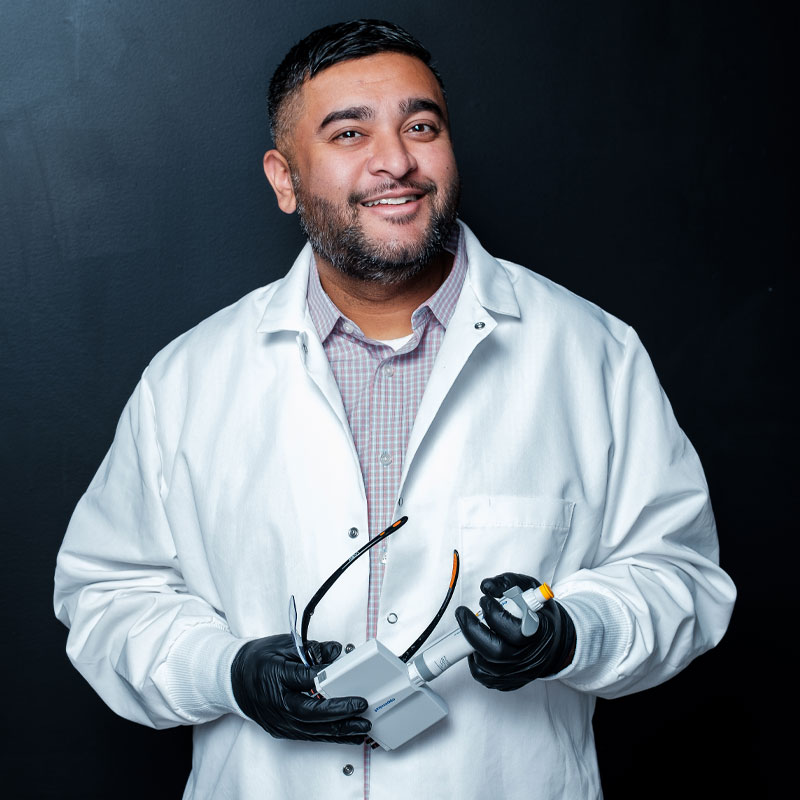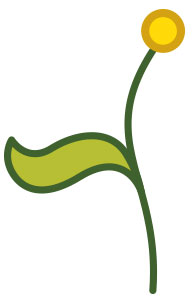

Arpit Shah
BS, MS, PhD biomedical engineering ’11, ’14, ’17
Senior Scientist, Century Therapeutics (Philadelphia)
Age 35

Biomedical engineer Arpit Shah has a rare understanding of what it takes to develop and then manufacture cell therapies from his vantage point as senior scientist in the analytical development group of Philadelphia-based biotech company Century Therapeutics — insights he has used to help develop an innovative industry-partnered certificate program at Drexel.
Launched last summer, the Cell and Gene Therapy Certificate trains students interested in this fast-growing discipline on the nitty-gritty of bringing therapeutics from lab bench to market. It’s one part of Drexel’s new Cell and Gene Therapy Technology, Engineering, Analytics, Manufacturing & Science (CGT-TEAMS) academic offerings, which biopharma giant Bristol Myers Squibb is supporting with nearly $1 million in funds.
“The goal of the certification is to get these students ready to work in the cell and gene therapy manufacturing sector,” says Shah, who co-taught the program’s inaugural online course last fall as an adjunct professor. “They’re getting first-hand experience from industry professionals and seeing what types of technical skills you need.”
Booming cell and gene therapy has earned the Philadelphia region the moniker “Cellicon Valley,” and Drexel is helping to lead the charge through partnerships with life science companies and an expansion of educational opportunities that meet demand for biomedical engineers skilled in manufacturing the cutting-edge therapies.
“Arpit is crucial in helping Drexel students develop these much-needed gene therapy skills,” says Paul Brandt-Rauf, dean of the School of Biomedical Engineering, Science and Health Systems. “His expertise and his willingness to share his knowledge has been instrumental in developing the new courses and programs in gene therapy at Drexel.”
Shah says his undergraduate experience has shaped how he teaches.
“I had to really buckle down,” he says of his rough first year. “What I learned in college is how to learn.” The greatest successes came through hands-on lab courses, Shah says, where the would-be engineer tinkered and tested as he solved problems. The experience led him to pursue his MS and PhD in biomedical engineering, researching the role of mechanical forces on the tumor microenvironment in hepatocellular carcinoma in Professor Adrian Shieh’s lab, and to appreciate the different ways students learn in his teaching assistant role.
For his doctorate, Shah used a 3D cell culture microenvironment to examine the impact of biomechanical forces, such as rising interstitial fluid flow in tumors and matrix stiffness, on the invasion and migration of liver cancer cells.
“It was very interesting and challenging work,” he says. The research was published in the Journal of Visualized Experiments in 2012 and PLOS One in 2015. He also co-authored a chapter in a 2015 book, “Cells, Forces and the Microenvironment.”
In 2019, Shah joined Spark Therapeutics, a gene therapy pioneer based in Philadelphia, where he developed assays for gene therapy clinical trials, before jumping to Century. Along the way, he has kept his hand in teaching — his first love, he allows. As adjunct faculty at Temple University, he taught an introductory bioengineering course. Shah says he wants to bring that same hands-on learning to Drexel’s certificate program.
“The most enjoyable moment is the light-bulb effect,” he says. “You figured out what they weren’t understanding and a different way to present it. You see it in their face. They genuinely understand it.”
How I Pay it Forward
Paying it forward is an integral part of my ethos as many individuals and mentors played a significant role in my personal and professional growth throughout the years. I firmly live by the mantra of ‘time is the currency of life’. One of the key ways I try to pay it forward is simply taking the time to talk to current and former students by providing them with insight into my experience both professionally and personally. Serving as a board member for the Drexel Biomed Alumni Network allows me to contribute to the mission of the school, fostering connections and opportunities for fellow alumni and graduating students. Additionally, I dedicate time to guest lecturing for biomed senior design classes, imparting practical knowledge and insights to the next generation of biomedical engineering professionals. Beyond the classroom, I actively engage with the School of Biomed, providing valuable industry perspectives and contributing to the development of courses for the Cell and Gene Therapy Certificate Program. Teaching these courses further extends my commitment to empowering others with the skills and knowledge needed to excel in the evolving field of cell and gene therapy.




